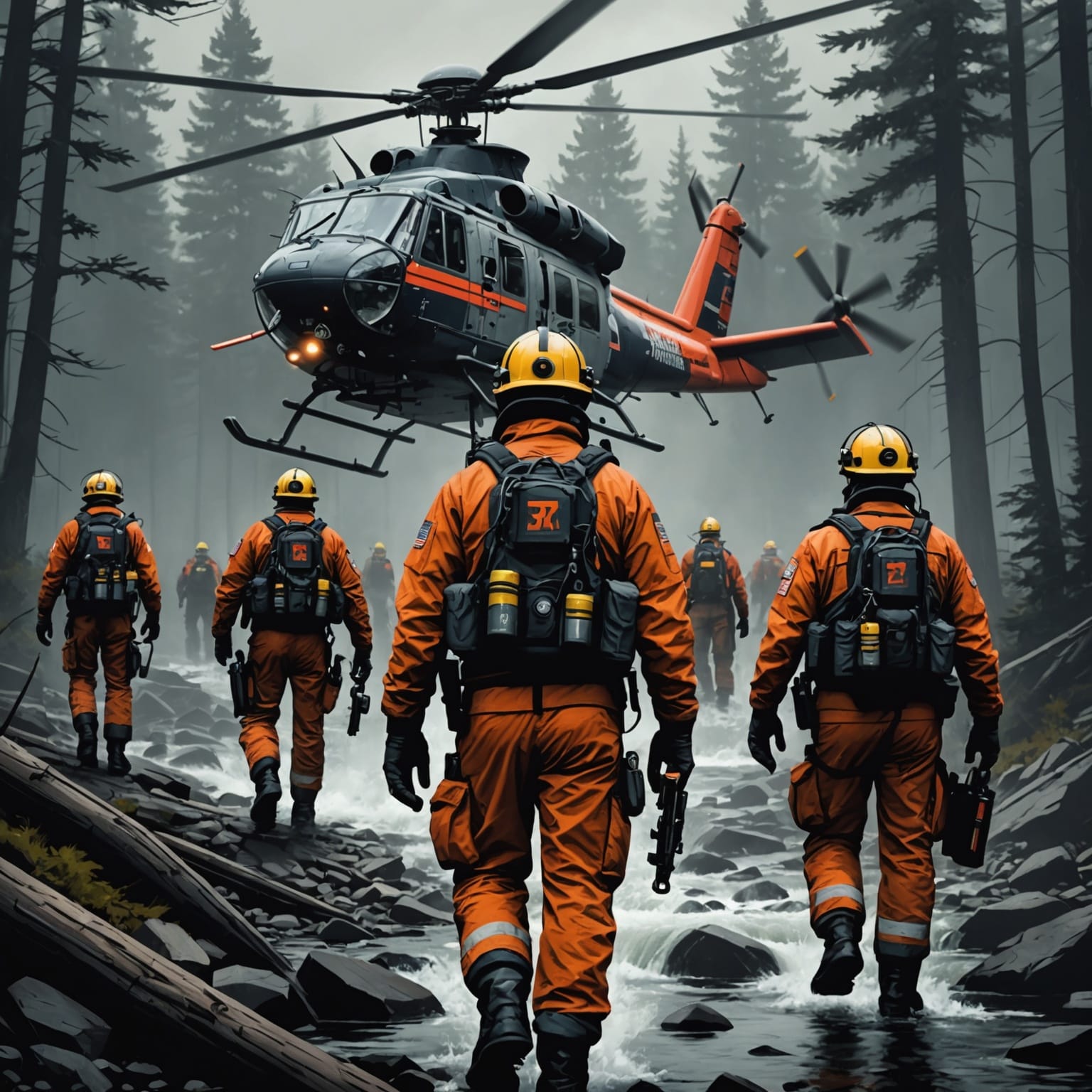I’m going to skip the preamble. Here are the key points for staying safe when camping in the wilderness!

- DO NOT
- DO NOT travel outside of camp alone
- DO NOT leave your children alone anywhere for any amount of time
- DO NOT drink unsafe water (such as lake or steam water)
- DO NOT eat unknown plants
- DO NOT feed the wildlife
- DO NOT play with the wildlife
- DO NOT leave fires unattended
- DO NOT hike off trail or violate national park rules
- 1. Plan Ahead
- Know Your Campsite: Research the area, including local wildlife, weather conditions, and any specific hazards (like rivers or steep cliffs). Check if permits are required.
- Check Weather Forecasts: Be prepared for sudden changes in weather, and pack accordingly (rain gear, sun protection, etc.).
- Tell Someone Your Plans: Always inform a trusted person (or many people) of your itinerary and expected return time, especially if you’re camping in remote areas.
- Pack Backups – Always bring backup batteries, cell phones, and chargers.
- 2. First Aid Kit
- Pack a First Aid Kit: Include bandages, antiseptics, medications, tweezers, and any personal medical necessities like inhalers or EpiPens.
- Learn Basic First Aid: Be prepared for common injuries like cuts, burns, or insect bites. It’s helpful to know how to treat these in the wild.
- 3. Food and Water Safety
- Safe Drinking Water: Carry enough clean water, or bring a water filtration system or purification tablets if you’ll be sourcing water from lakes or streams.
- Store Food Properly: Use bear-proof containers or hang your food from a tree at least 200 feet away from your campsite. This keeps both you and wildlife safe.
- Keep a Clean Campsite: Avoid attracting animals by cleaning up food scraps and disposing of garbage in sealed bags or bins.
- 4. Fire Safety
- Build Fires in Designated Areas: Use established fire rings if available, and keep fires small.
- Extinguish Fires Completely: Always douse your fire with water and stir the ashes until they are cold before leaving or going to sleep.
- Mind the Wind: Avoid building fires during windy conditions, as this can cause the fire to spread.
- 5. Wildlife Awareness
- Store Food and Trash Safely: As mentioned, proper storage of food reduces the chances of attracting wildlife like bears or raccoons.
- Do Not Approach Wildlife: Maintain a safe distance from animals and never feed them.
- Know What to Do in an Encounter: Research what animals are in the area and how to react if you encounter them (e.g., bear encounters versus snake encounters).
- 6. Navigation
- Bring a Map and Compass or GPS: Don’t rely solely on your phone, as battery life is limited and service may be unavailable.
- Stay on Marked Trails: If you are hiking, stick to the designated paths to avoid getting lost or venturing into dangerous areas.
- Mark Your Campsite: Ensure your tent and campsite are easy to spot, especially if you’re in a large or unfamiliar area.
- Tell Others: If you are leaving camp, tell others where you are going and for how long you plan to be gone (tell someone to call for help if you are not back by a certain time)
- 7. Clothing and Gear
- Wear Layers: Weather can change rapidly, so pack layers that can keep you warm, dry, and protected from the elements.
- Proper Footwear: Wear sturdy, comfortable shoes suited for the terrain to prevent injuries like sprains.
- Sun and Bug Protection: Bring sunscreen, sunglasses, hats, and insect repellent.
- 8. Hydration and Energy
- Stay Hydrated: Drink water regularly, even in cooler weather. Dehydration can sneak up on you, especially if you’re active.
- Pack Energy-Dense Foods: Bring lightweight, high-calorie snacks like nuts, jerky, and energy bars to keep your energy levels up.
- 9. Emergency Preparedness
- Bring Emergency Tools: Have a flashlight, headlamp, whistle, and multi-tool or knife with you at all times. Make sure your flashlight has extra batteries (just in case).
- Know How to Signal for Help: Learn basic survival techniques, including how to make a signal fire, use a whistle, or create visible markers for rescue teams.
- Personal Locator Beacon: If you’re camping in very remote areas, consider carrying a personal locator beacon or satellite communication device.
- 10. Respect Nature
- Leave No Trace: Follow the “Leave No Trace” principles to minimize your impact on the environment, keeping it clean and safe for wildlife and future campers.
- Respect Local Regulations: Be aware of fire bans, trail closures, and other local restrictions

